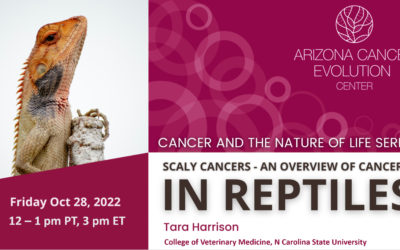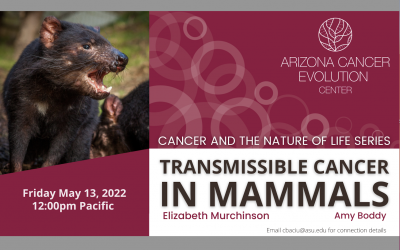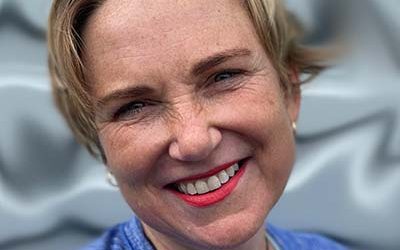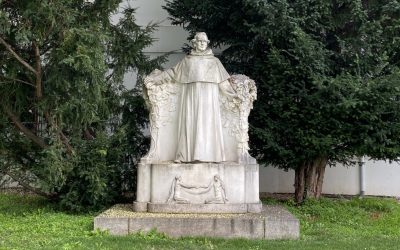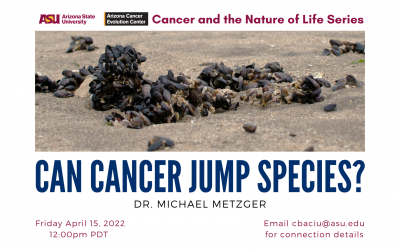News
SCALY CANCERS – AN OVERVIEW OF CANCERS IN REPTILES, Zoom talk, Friday 28th October, 12- 1pm AZ & PT (3-4pm EST)
Cancer and the Nature of Life Discussion Series. Snakes get a lot of cancer and their disease is often aggressive. Some lizard species, such as bearded dragons, also seem particularly prone to cancer. What's going on and how can these animals best be treated? ACE...
Congratulations Trevor Graham!
ACE'S Professor Trevor Graham has been elected as a Fellow of the Academy of Medical Sciences in the UK. This is the citation: "Trevor Graham, Professor of Genomics and Evolution at the Institute of Cancer Research, is a pioneer of cancer evolution research, and of...
‘In Search of Chemozoa’ – finalist in major competition
Congratulations to Boredomresearch! In Search of Chemozoa is a finalist for the SCINEMA International Science Film Festival (a project of the Royal Institution of Australia) in the experimental/animation category. The film festival is the largest of its kind in the...
Next Cancer and Nature of Life
We have postponed our August event due to many universities still being on summer break. Our next meeting will be in October. Details to follow soon!
Transmissible Cancer in Mammals -Watch recording here
Cancer and the Nature of Life Series. Friday 13 May 2022, Noon AZ and Pacific time. Please join us! Brief Abstract: Cancer arises when mutations drive cells of the body to abandon their usual functions and to instead embark upon a “selfish” evolutionary program...
ACE advocate’s story of bringing art and her cancer experience together
Erin McGee Ferrell's has interwoven art with her own cancer journey. Read about it in the National Coalition for Cancer Survivorship Newsletter!
Celebrating Gregor Mendel’s bicentenary
Gregor Mendel is known as the father of genetics who was born 200 years ago in July 1822. His life as a catholic Abbott and meticulous studies with pea plants are described in this radio documentary by ACE's Pauline Davies
Cancer and the Nature of Life Series – Michael Metzger’s talk
https://www.youtube.com/watch?v=Uaec1ETs0hE&t=4s Watch to discover the latest findings on cancer cells that behave like free-living organisms! Brief abstract: Cancer is not normally contagious, but in some cases, cancer can jump from one individual to another. In...
Evolutionary Biology and Ecology of Cancer Summer School 2022 – Applications open
Applications are open for the Evolutionary Biology and Ecology of Cancer Summer School 2022, taking place between June 13-17, 2022 at the Wellcome Genome Campus, UK.Students will have the opportunity to explore various modelling techniques (e.g. agent-based, game...
The Electric Life of Cancer – watch this amazing video
This is the second episode of our monthly ‘Cancer and the Nature of Life’ series. Mike Levin from Tufts University does an amazing job with ‘The Electric Life of Cancer’.
Events
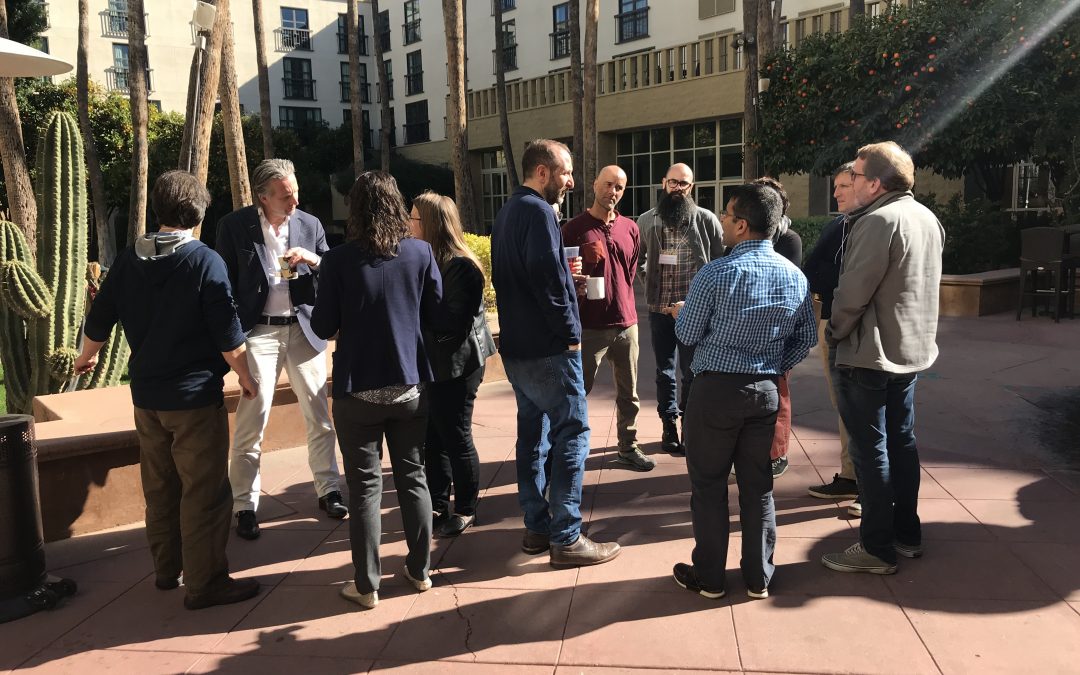
Cancer and Embryo Development Workshop, 17-18 January 2020, Tempe
It has been known for some decades that there is a deep link between tumorigenesis and embryo development. Many of the hallmarks of cancer are also hallmarks of early-stage development: angiogenesis, hypoxia, cell motility, tissue invasion, stemness. It has even been...
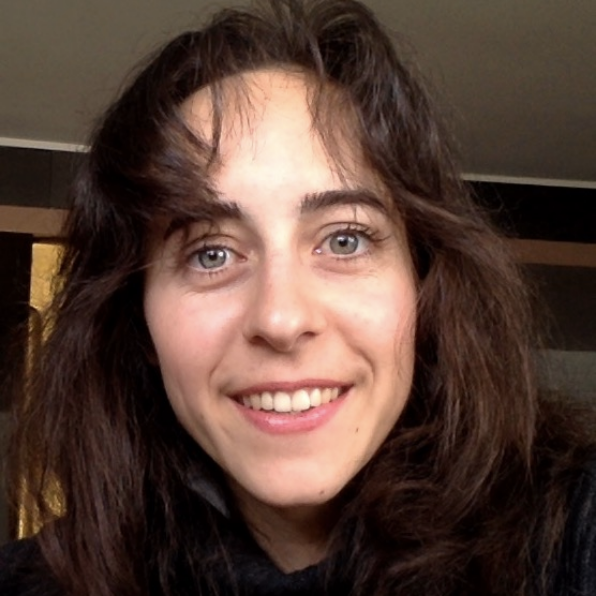
Coffee at Beyond: The Multicellular Symphony – Cooperation, conflict, cancer and chimeras across the tree of life
3pm January 27 2021, Biodesign Auditorium Dr Steffi Kapsetaki Open to all.
Public Lecture: From Fish to FOMO
ACE, The Center for Evolution and Medicine, and the Biodesign Institute are delighted to host Dr. Barbara Natterson-Horowitz for a public lecture on Thursday, January 16, 2020, 5 - 6:00 pm. The talk, titled From Fish to FOMO: How Social Media and the Ancient “Biology...
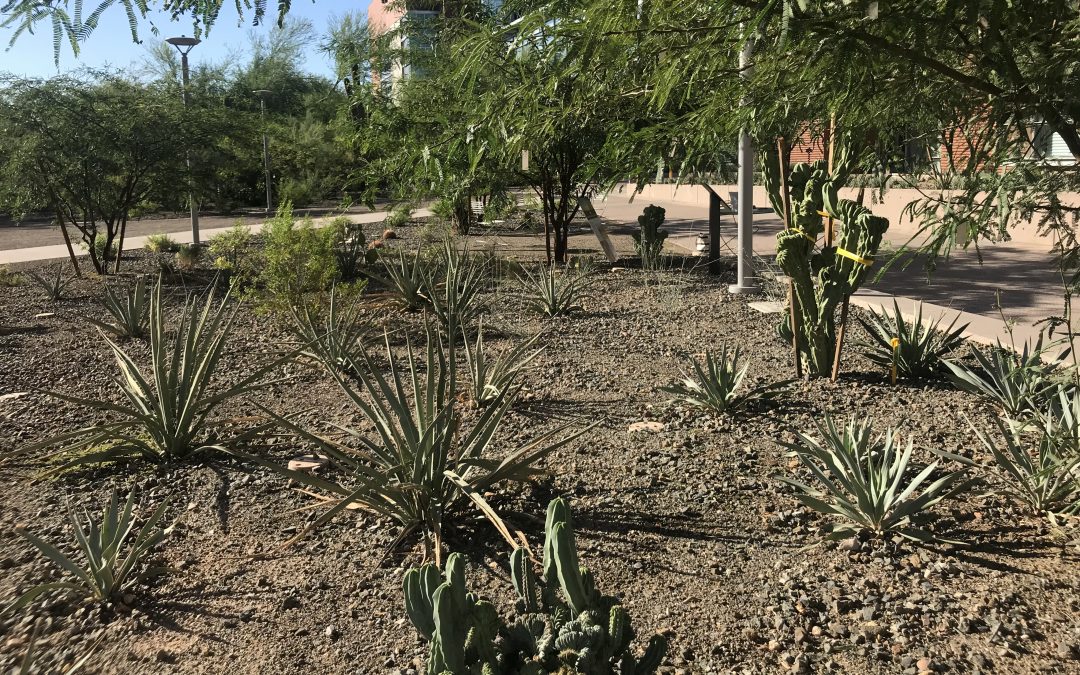
KJZZ Interview with Athena Aktipis and Carlo Maley – Cactus Garden and Cancer Adaptive Therapy
KJZZ’s Mark Brodie talks to Athena Aktipis and Carlo Maley in the cancer cactus garden at ASU. They discuss how strangely-formed, crested cacti (fasciated) not only look amazing but are reminiscent of cancer, reminding us that that the disease is present in all multi-cellular life. Aktipis and Maley’s research is pointing the way to clinical trials of ‘adaptive therapy’ for metastatic cancer, whereby ‘nicer’ cancer cells are deliberately kept alive to keep the ‘nasties’ in check – a potentially more effective treatment than aggressive chemotherapy.
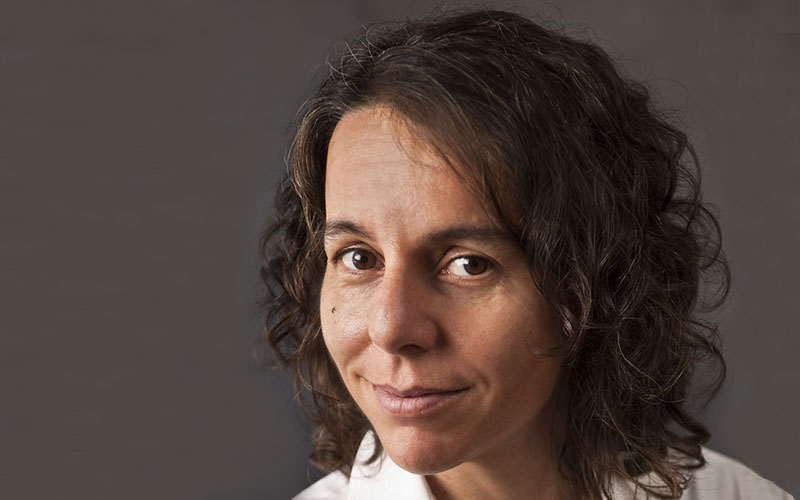
View Public Lecture by Susan Rosenberg PhD – Why Cancers (and Infections) Beat Us and How to Turn the Tables, Apr. 25th
Outwitting cancer’s ability to evolve drug resistance requires a deep grasp of the mechanisms of evolution. A recent discovery that cells can control their own mutations looks set to transform cancer therapy.
